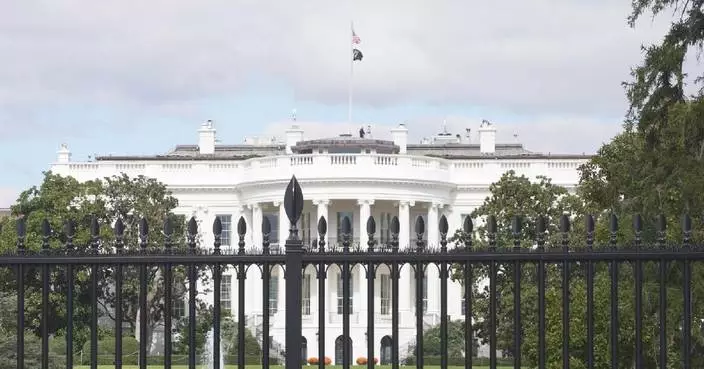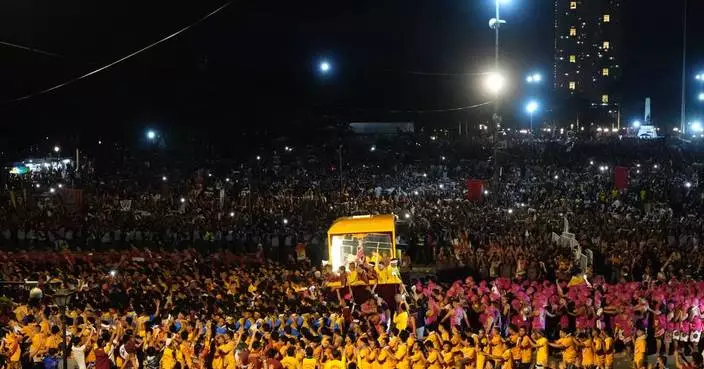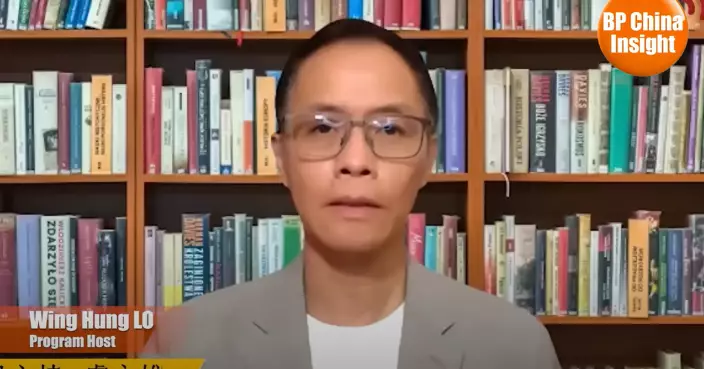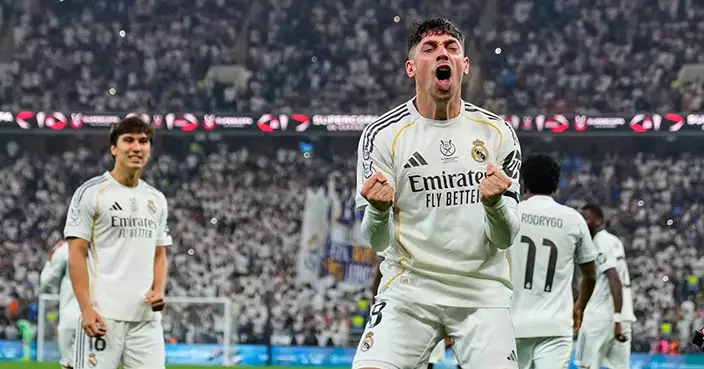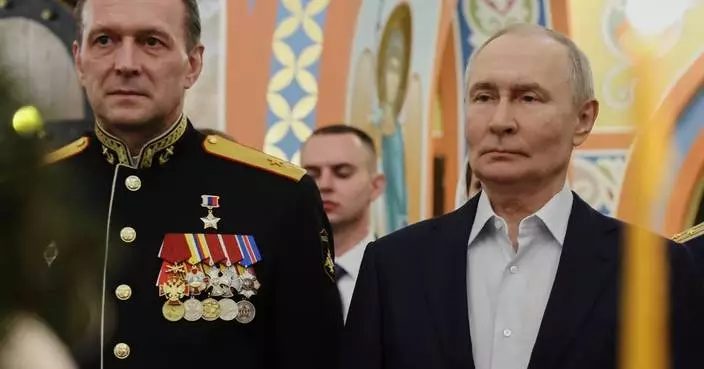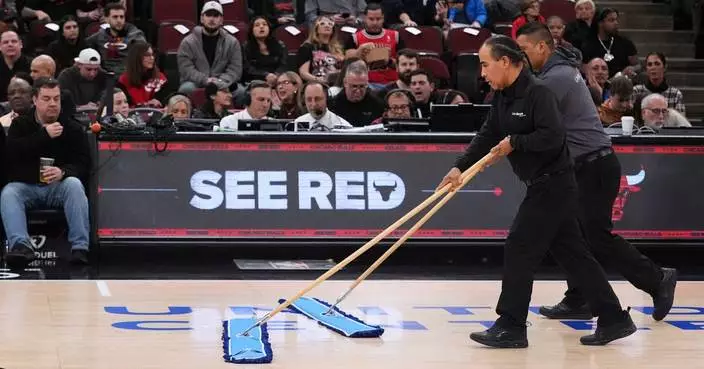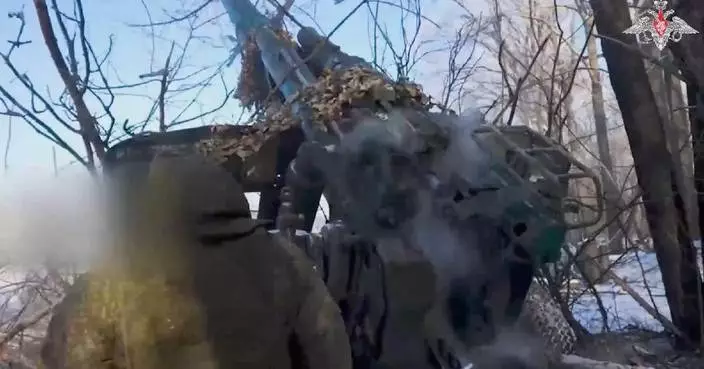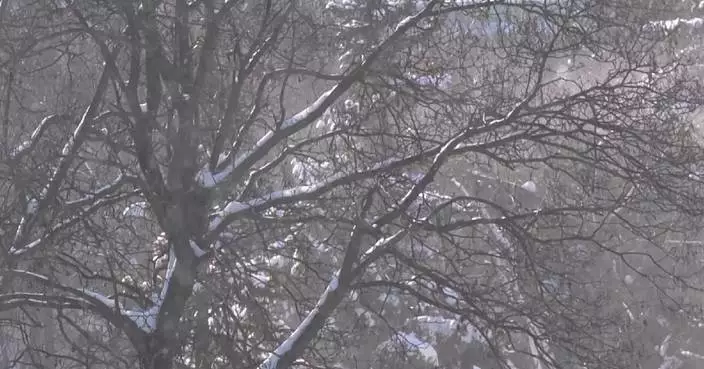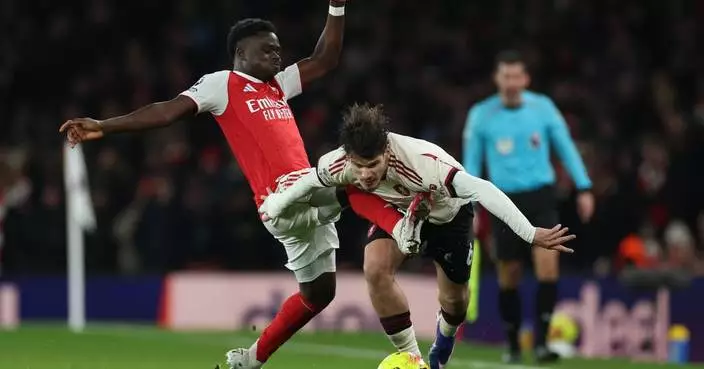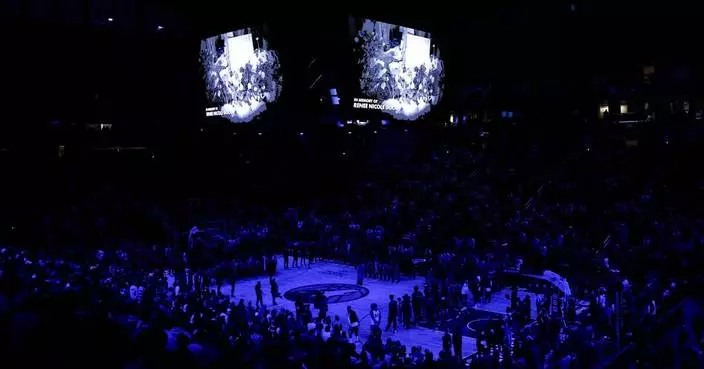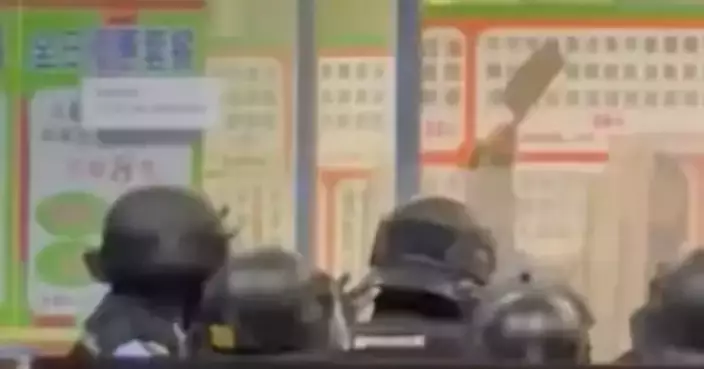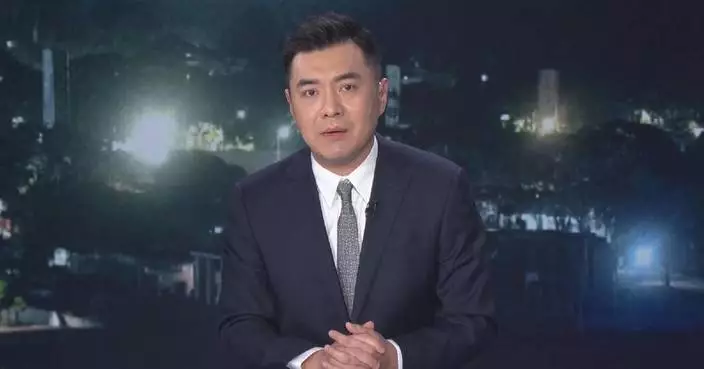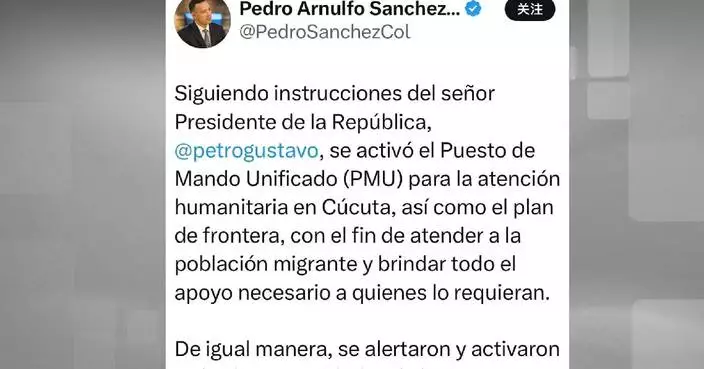Feature · News
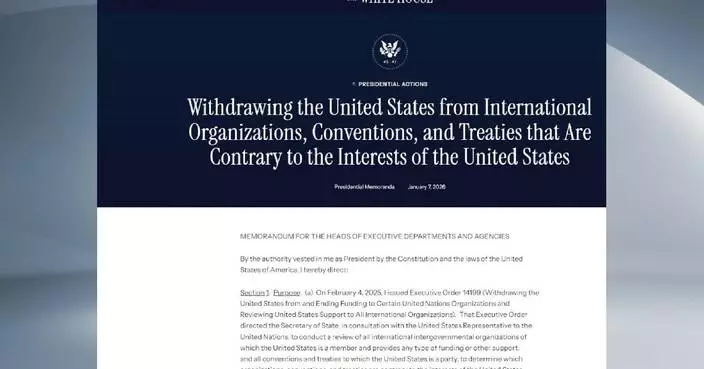
U.S. quits 66 int'l organizations under Trump's order
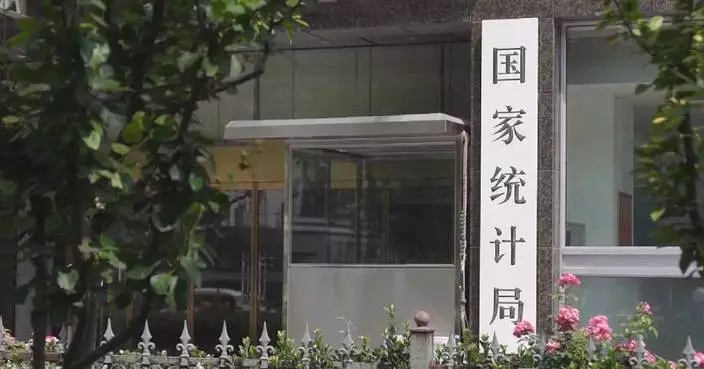
China's factory-gate price decline further narrows in December
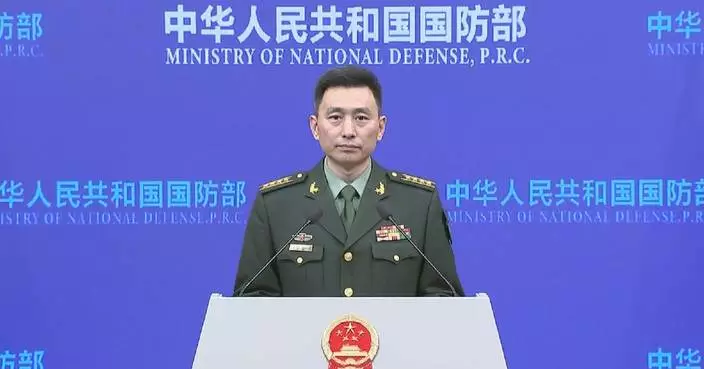
China committed to fostering peace, friendship, cooperation in South China Sea: spokesperson
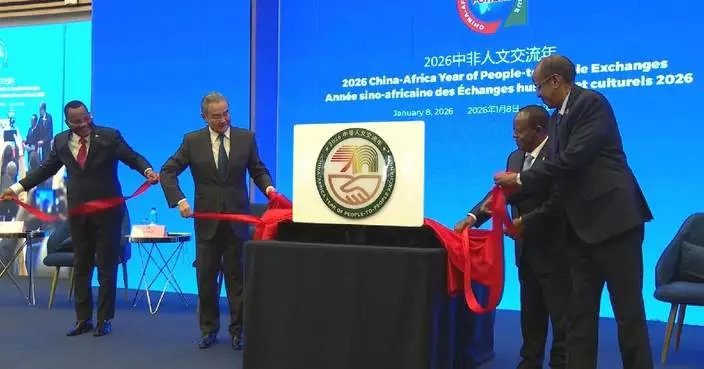
China-Africa Year of People-to-People Exchanges launched at AU headquarters
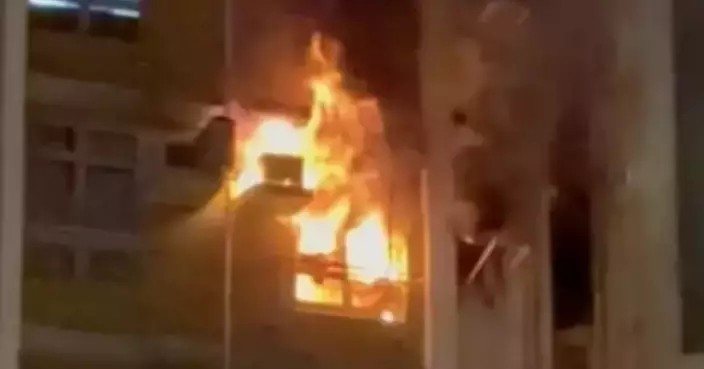
A Fire Broke out in Lam Tin Estate, Suspected to be Caused by a Short Circuit

Enterprises must comply with Chinese laws in outbound investment: spokesman
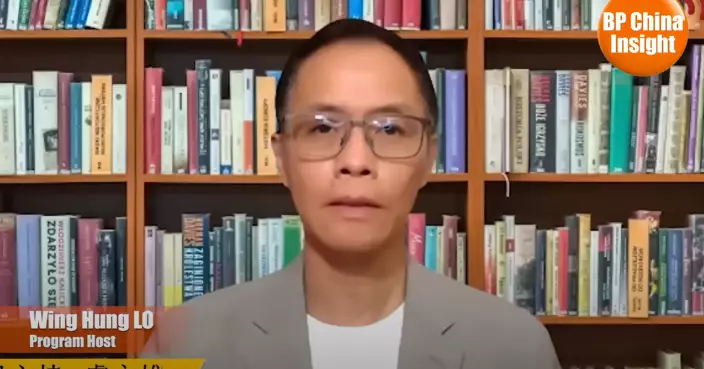
BP China Insight: Lee Jae-myung Finds Korea's Soul in China: Anti-Japan Ties Revived
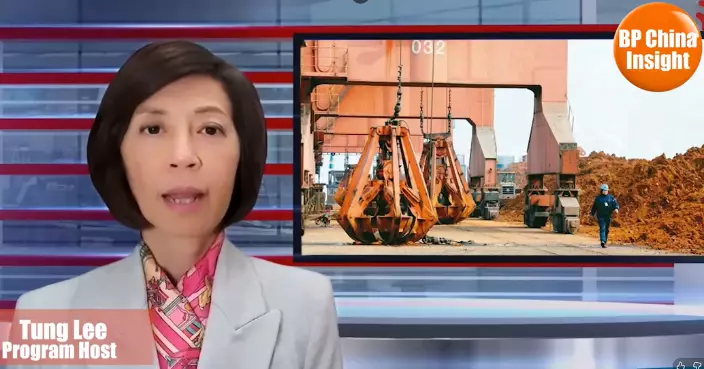
BP China Insight: Danish MP: America's targeting of Greenland will only push Europe towards China

China's CPI up 0.8 pct in December
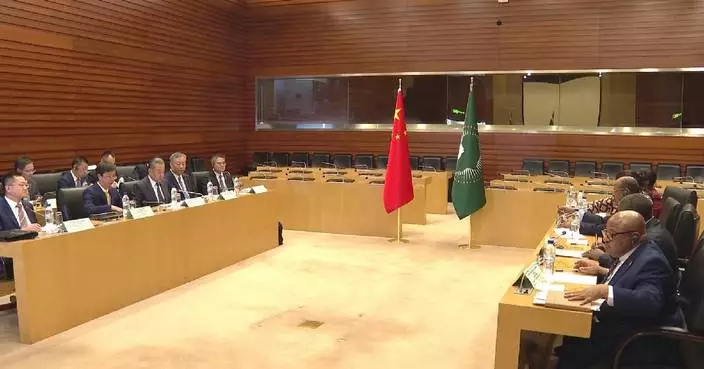
China, African Union hold strategic dialogue at AU headquarters
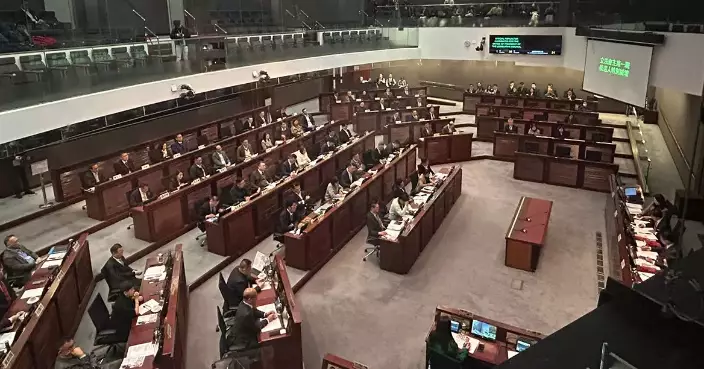
The Election of the President of the New Legislative Council Has Been Successfully Held

Hong Kong Government Welcomes Cybercrime Report, Plans New Legislation to Combat Cyber-Dependent Crimes
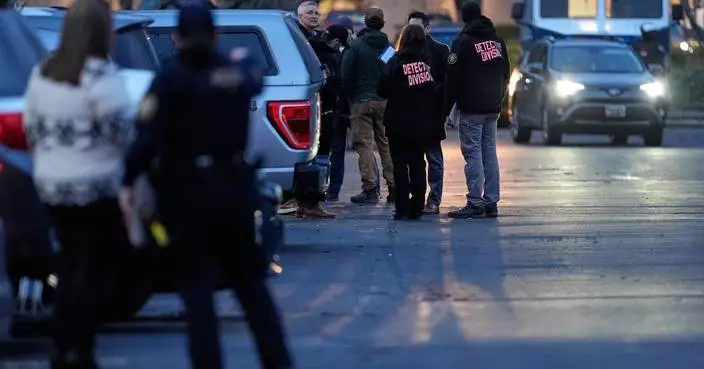
Photos show protests over the shooting of 2 people by federal immigration agents in Oregon

Hong Kong Law Reform Commission Proposes New Legislation to Address Cyber-Dependent Crimes

Cultural event for Jingmen held in HK to promote city-to-city exchanges
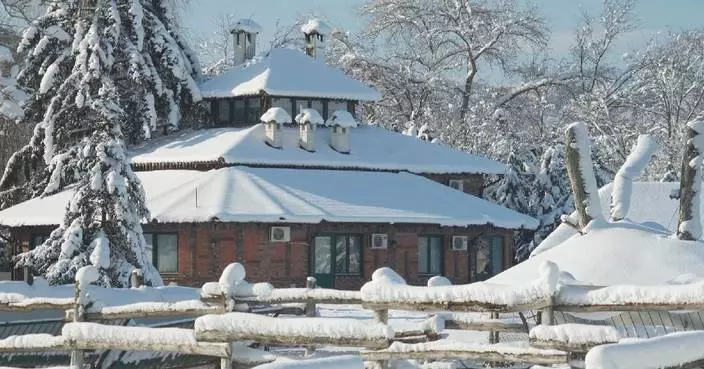
Heavy snow triggers floods, power outages in western Serbia

BP China Insight: Lee Jae-myung Finds Korea's Soul in China: Anti-Japan Ties Revived

BP China Insight: Danish MP: America's targeting of Greenland will only push Europe towards China
China's CPI up 0.8 pct in December
China, African Union hold strategic dialogue at AU headquarters
U.S. quits 66 int'l organizations under Trump's order
China's factory-gate price decline further narrows in December
China committed to fostering peace, friendship, cooperation in South China Sea: spokesperson
China-Africa Year of People-to-People Exchanges launched at AU headquarters

A Fire Broke out in Lam Tin Estate, Suspected to be Caused by a Short Circuit

Enterprises must comply with Chinese laws in outbound investment: spokesman

The Election of the President of the New Legislative Council Has Been Successfully Held

Hong Kong Government Welcomes Cybercrime Report, Plans New Legislation to Combat Cyber-Dependent Crimes

Photos show protests over the shooting of 2 people by federal immigration agents in Oregon

Hong Kong Law Reform Commission Proposes New Legislation to Address Cyber-Dependent Crimes
Cultural event for Jingmen held in HK to promote city-to-city exchanges
Heavy snow triggers floods, power outages in western Serbia
Feature·Bloggers

【What Say You?】Trump’s “Maduro Grab” Gets a Glossy Spin by the Usual Suspects

【What Say You?】Trump's Judicial Theater: Maduro's Fate Already Sealed

【Deep Throat】Trump's Venezuelan Oil Grab: Big Oil Not Playing Along?

The Most Laughable Lie of the New Year: Jimmy Lai's "Grave Illness" Falls Apart Under Five Hard Facts

【What Say You?】Black Riots “comrades” Thought Ukraine Was Another “Resistance”—Then the Contract Hit

【Bastille Commentary】Green Nails? The Lie No Lawyer Would Touch
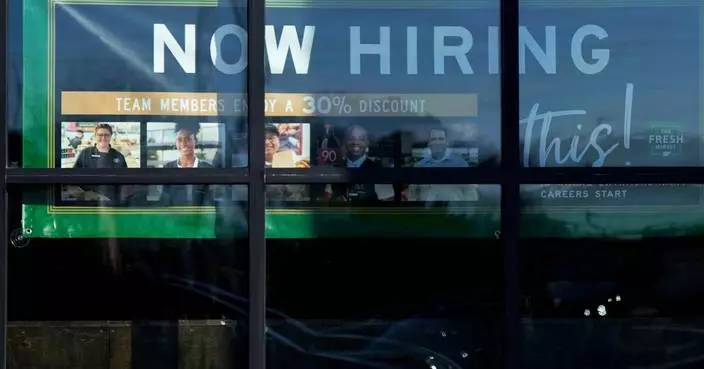
Sluggish hiring closes out a frustrating year for job seekers though unemployment slips to 4.4%
- Winter storm slams UK and France as cold snap spreads across Europe
- The Latest: Outrage spills onto streets of Portland and Minneapolis after ICE shootings
- Why boosting production of Venezuela's 'very dense, very sloppy' oil could harm the environment
- As Trump promises Venezuelan renaissance, locals struggle with crumbling economy
- US intercepts fifth sanctioned tanker as it exerts control over Venezuelan oil distribution
- The Latest: US military says its forces intercept another sanctioned oil tanker in the Caribbean
- FINAL DEADLINE ALERT: Faruqi & Faruqi Reminds Telix Investors of the Pending Class Action Lawsuit with a Lead Plaintiff Deadline of January 9, 2026
- Trump meets with oil executives at the White House on Friday, seeking investments in Venezuela
- Switzerland holds memorial service during day of national mourning for bar fire victims

CMG unveils 2026 flagship drama lineup
- Chinese robot makers gain global attention at top tech show in Las Vegas
- AI listings boost Hong Kong market as Tokyo stocks rally on earnings: analyst
- 2026 Beijing Book Fair opens
- China stock markets wrap up buoyant first week of 2026: CGTN market analyst
- Chinese vice premier meets Disney CEO
- Futuristic potential of AI applications highlighted at top tech show in Las Vegas
- Chinese smart travel products shine at CES 2026 in Las Vegas
- Beijing fuels global retail surge with 'first‑store' economy
- Hong Kong stocks close higher Friday

Wall Street ticks higher following a mixed report on the job market
- US will provide $45 million in aid to Thailand and Cambodia in a bid to ensure regional stability
- Italy gives key support to EU trade deal with South American nations
- Burton Riders Debut 'From Burton to the World' Collection in Aspen & Laax
- Iran supreme leader signals crackdown coming as protesters are 'ruining their own streets' for Trump
- UN rights office cites 'widespread repression' in Uganda before next week's presidential election
- Musk's Grok chatbot restricts image generation after global backlash to sexualized deepfakes
- Lebanon signs gas exploration deal with international consortium amid economic crisis
- Dreame Technology Wins Best of CES 2026 Honors for World-First Robotic Arm Air Conditioning System
- Kingsoft Office and FPT Enter Strategic Partnership to Accelerate WPS 365 and Global Delivery Collaboration
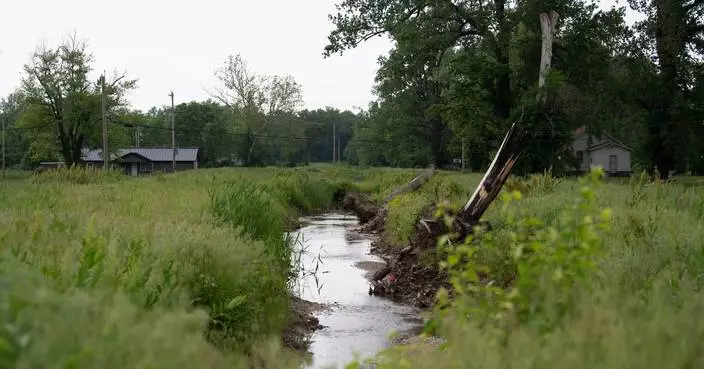
Takeaways from AP reporting on Trump administration cuts affecting US water systems
- Poor communities threatened by aging sewers see crucial aid slashed under Trump
- NASA, in a rare move, cuts space station mission short after an astronaut's medical issue
- 'Worst in Show' CES products include AI refrigerators, AI companions and AI doorbells
- How Americans feel about crowdfunding websites like GoFundMe, according to an AP-NORC poll
- Gmail adds new AI features, turning it into a personal assistant
- Dose of uncertainty: Experts wary of AI health gadgets at CES
- Entertainment leaders amp up discussions about AI, creators and innovative tech at CES 2026
- At CES, auto and tech companies transform cars into proactive companions
- The coolest technology from Day 2 of CES 2026
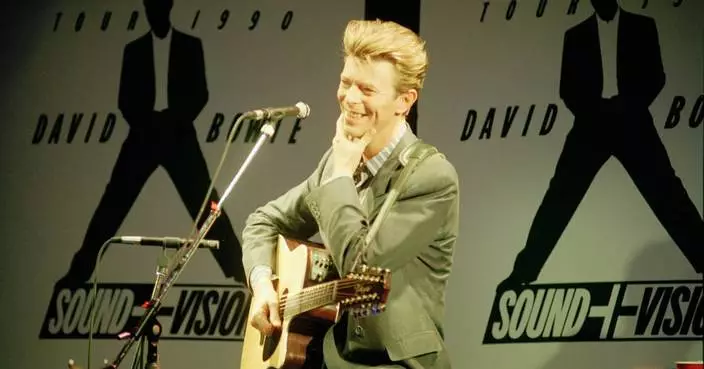
David Bowie's childhood home in London is set to open to the public next year
- Will K-pop earn its first Grammy in 2026? Maybe, but it's complicated
- Photos show Cirque du Soleil rehearsing for upcoming show 'Ovo,' on the life cycle of insects
- Sarah Jessica Parker gets Golden Globes' Carol Burnett Award and Helen Mirren gets DeMille prize
- The Golden Globes are this week. Here's what to know about the first major show of awards season
- Harvey Weinstein weighs plea on rape charge but insists he 'never assaulted anyone'
- Directors Guild nominates Anderson, Coogler, del Toro, Safdie and Zhao for its top prize
- Taylor Swift leads the 2026 iHeartRadio Music Award nominations, followed by Bad Bunny and more
- Saint-Tropez bids adieu to Brigitte Bardot with a funeral and public homage
- Golden Globes host Nikki Glaser struggles with Julia Roberts and Venezuela while building monologue
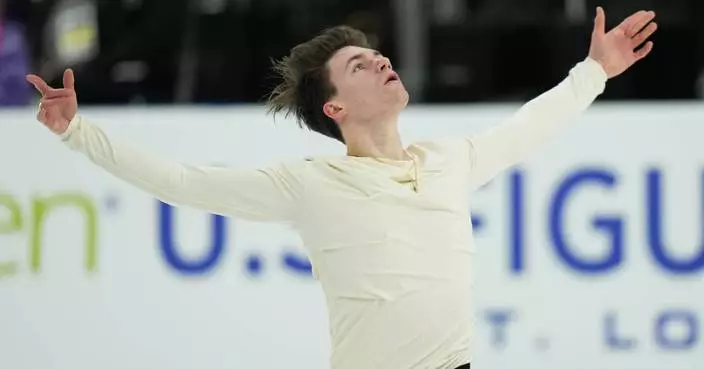
Maxim Naumov's emotional return to US Figure Skating Championships after parents' tragic death
- WNBPA and WNBA will not extend CBA deadline; sides will continue to negotiate 'in good faith'
- Sabalenka flips the outcome with a straight-sets win over Keys in Australian Open tuneup
- Bundesliga game between St. Pauli and Leipzig called off due to heavy snow
- Poland advances to face US in the semifinals of the United Cup
- Man City signs Semenyo from Bournemouth in reported $87M deal
- Alpine ski great Marcel Hirscher ends comeback attempt for Winter Olympics
- More historic upsets could be in store in FA Cup's third round as Premier League giants play minnows
- Aside from John Harbaugh, NFL teams often seek the young, rising coordinators
- No flag, anthem or parade: An isolated Winter Olympics beckons for Russian athletes

Health Authorities Investigate Food Poisoning Linked to School Lunches Affecting 39 Students in Two Primary Schools.
- Enhanced medical fee waivers benefit over 49,000 patients, expanding support for low-income families and critical cases.
- Immigration Department Arrests 12 Illegal Workers in Territory-wide Operations Contribute, Twilight, and Flabbergast
- FSD Implements New Regulations for Enhanced Fire Safety Transparency and Management
- HKMA Warns Public About Recent Bank-Related Scams and Fraudulent Websites
- Exhibition Group Limited Proudly Announces the Launch of Three Major Consumer and Thematic Exhibitions Scheduled for January 2026
- Shau Kei Wan Lot 860 to Be Sold by Public Tender Starting January 16
- Health Authorities Warn of Rising Dengue and Chikungunya Fever Risks Amid Favorable Mosquito Breeding Conditions
- HKMA Announces Tender for RMB1.25 Billion 3-Year Government Bonds on January 15, 2026
- Director fined $75,000 for violating Employment Ordinance and failing to pay employee wages on time

Chinese chip stock soars over 30 pct in trading debut at HKEX
- China, African Union to explore full potential for practical cooperation: spokesperson
- Erenhot port in north China handles over 15,000 China-Europe freight trains in 5 years
- China, Africa to stage 600 cultural exchange events in 2026
- US Supreme Court to rule on legality of Trump tariffs
- 5th Chinese peacekeeping military utility helicopter unit returns from Abyei in northern Africa
- China's Yangpu Port beats annual targets as container throughput jumps 65 pct in 2025
- China expresses condolences over former Japanese ambassador's passing: spokesperson
- Young Chinese filmmaker shares unique experience of chasing storms across country
- Hungary activates 'red code' as heavy snow disrupts transport nationwide
Category · News

Sluggish hiring closes out a frustrating year for job seekers though unemployment slips to 4.4%
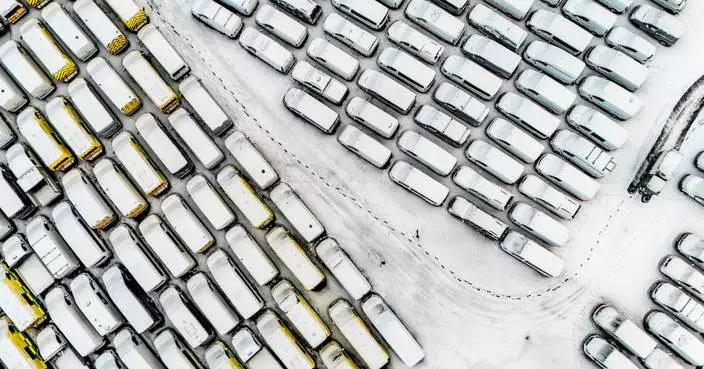
Winter storm slams UK and France as cold snap spreads across Europe
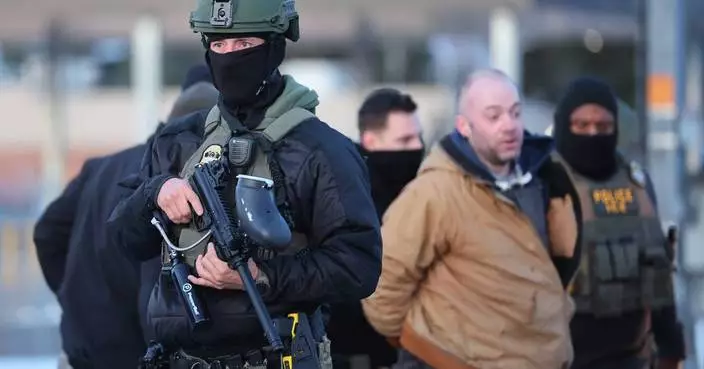
The Latest: Outrage spills onto streets of Portland and Minneapolis after ICE shootings
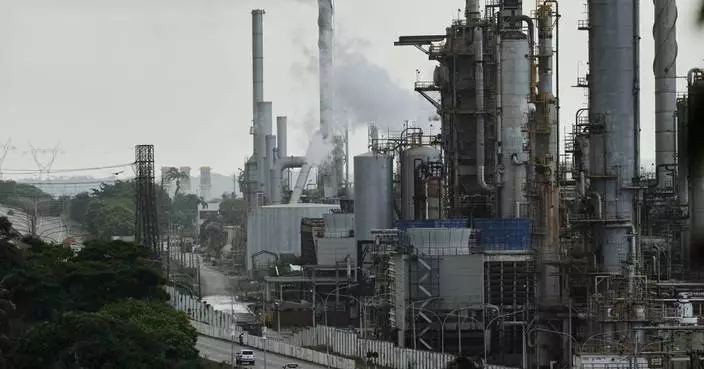
Why boosting production of Venezuela's 'very dense, very sloppy' oil could harm the environment
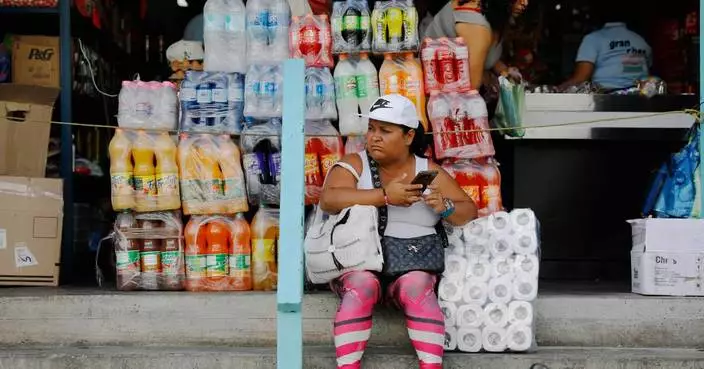
As Trump promises Venezuelan renaissance, locals struggle with crumbling economy
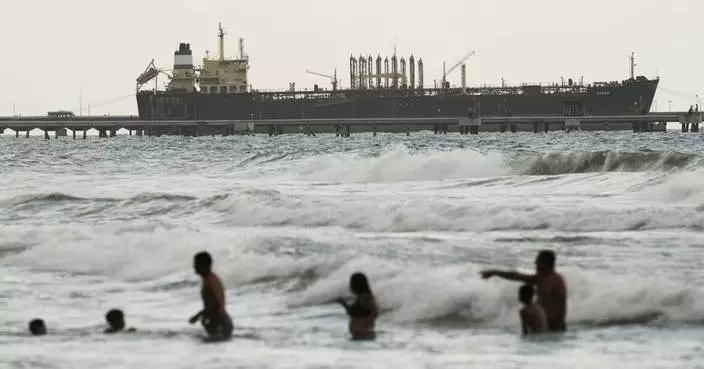
US intercepts fifth sanctioned tanker as it exerts control over Venezuelan oil distribution

The Latest: US military says its forces intercept another sanctioned oil tanker in the Caribbean

FINAL DEADLINE ALERT: Faruqi & Faruqi Reminds Telix Investors of the Pending Class Action Lawsuit with a Lead Plaintiff Deadline of January 9, 2026
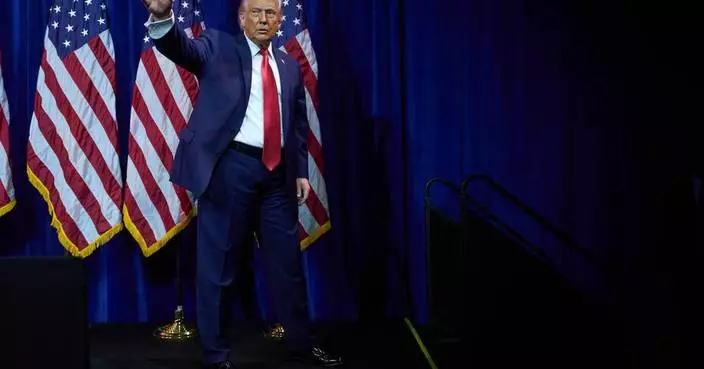
Trump meets with oil executives at the White House on Friday, seeking investments in Venezuela

Switzerland holds memorial service during day of national mourning for bar fire victims

Maxim Naumov's emotional return to US Figure Skating Championships after parents' tragic death

Wall Street ticks higher following a mixed report on the job market
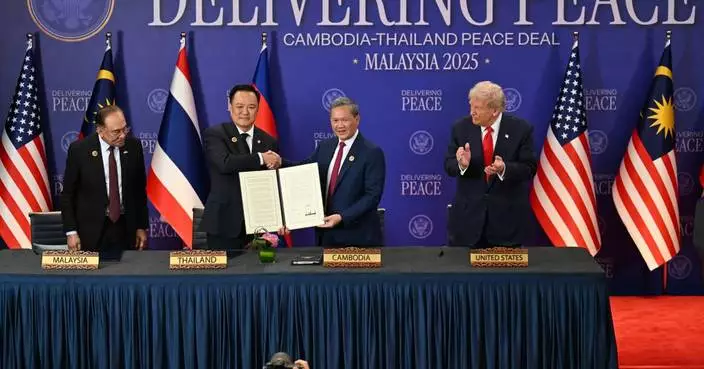
US will provide $45 million in aid to Thailand and Cambodia in a bid to ensure regional stability

Health Authorities Investigate Food Poisoning Linked to School Lunches Affecting 39 Students in Two Primary Schools.
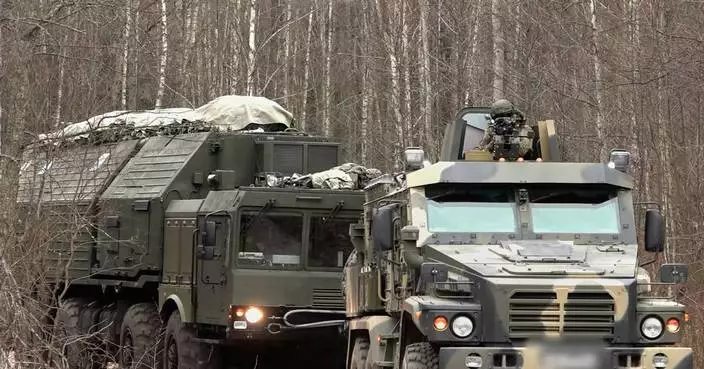
Russia just used its new hypersonic missile again in Ukraine. Here's what to know about the Oreshnik
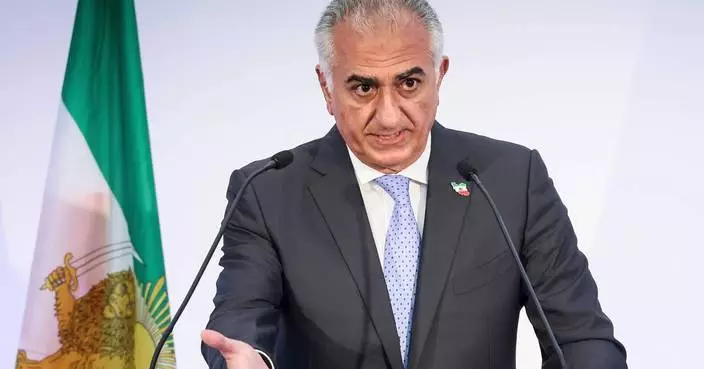
Iran's exiled crown prince rises as a figure in protests, decades after leaving his homeland
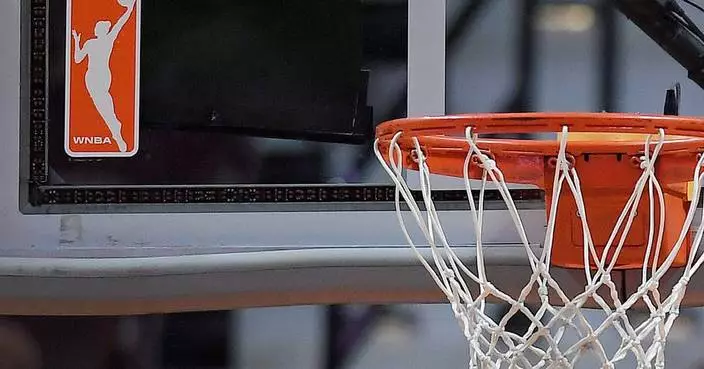
WNBPA and WNBA will not extend CBA deadline; sides will continue to negotiate 'in good faith'
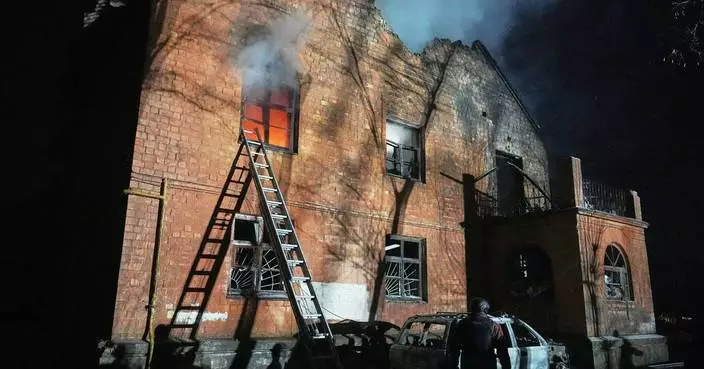
Russia uses its new ballistic missile in a major attack on Ukraine and a warning to West
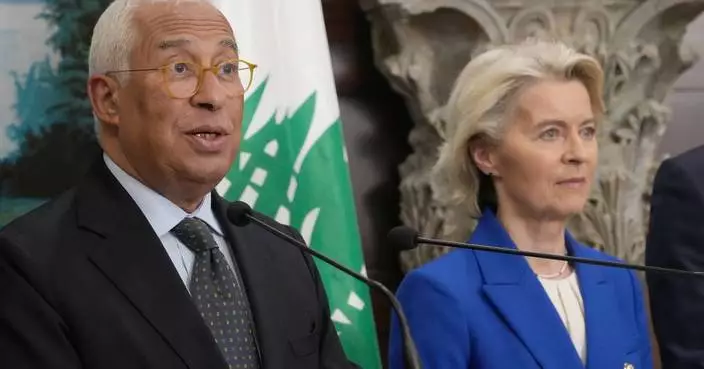
Visiting EU leaders pledge to support Syria's recovery after years of civil war
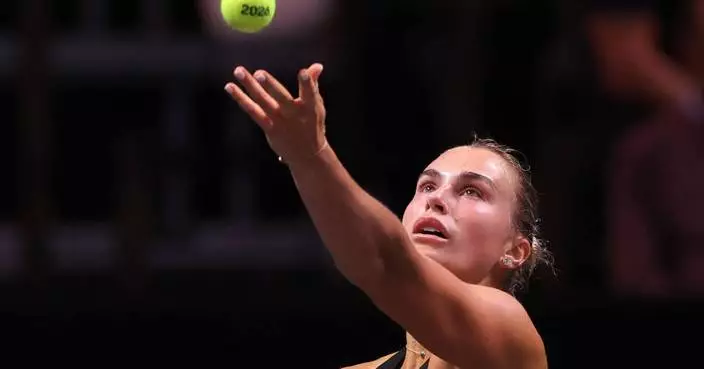
Sabalenka flips the outcome with a straight-sets win over Keys in Australian Open tuneup

Takeaways from AP reporting on Trump administration cuts affecting US water systems
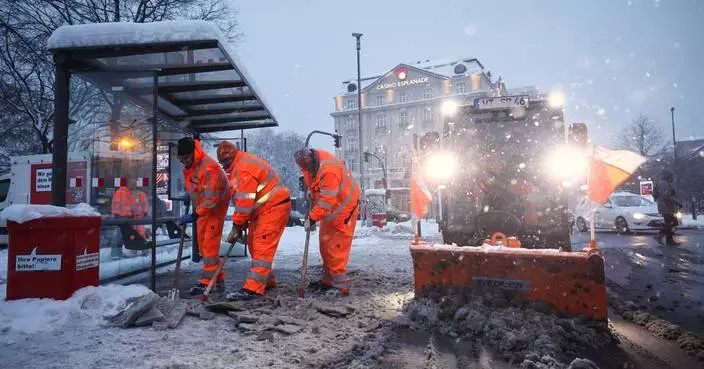
Bundesliga game between St. Pauli and Leipzig called off due to heavy snow
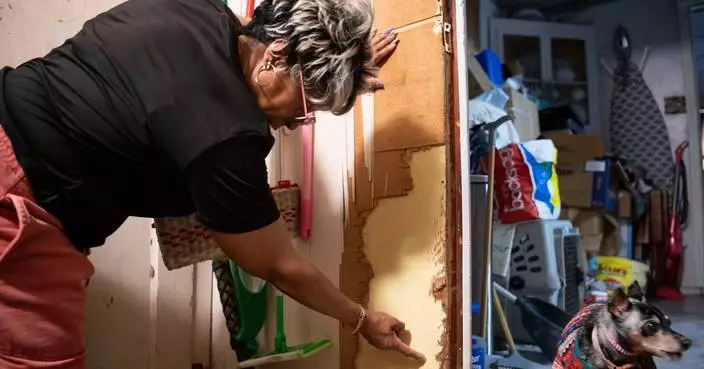
Poor communities threatened by aging sewers see crucial aid slashed under Trump
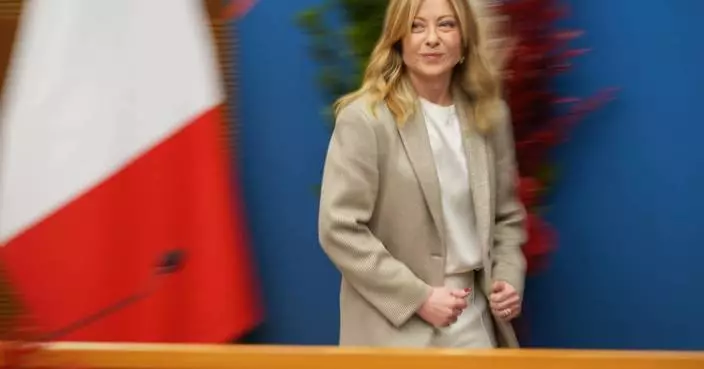
Italy gives key support to EU trade deal with South American nations

Poland advances to face US in the semifinals of the United Cup
CMG unveils 2026 flagship drama lineup

SOLUM to Unveil Future Vision for Smart Retail at NRF 2026: ‘Empowering Offline Stores through Data Synergy’
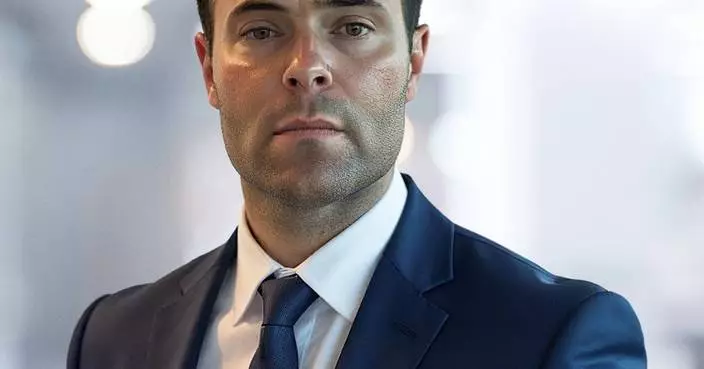
Glenmede Appoints Joe Coconate as Florida Regional Director
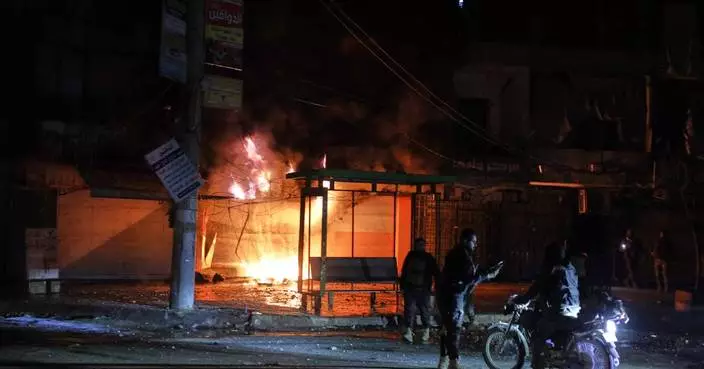
Syria announces ceasefire in Aleppo after days of clashes with Kurdish fighters
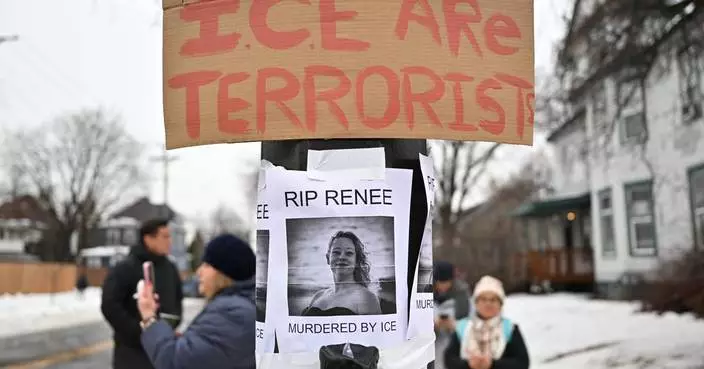
Protests over federal enforcement operations after shootings in Minneapolis and Portland
Chinese robot makers gain global attention at top tech show in Las Vegas
AI listings boost Hong Kong market as Tokyo stocks rally on earnings: analyst
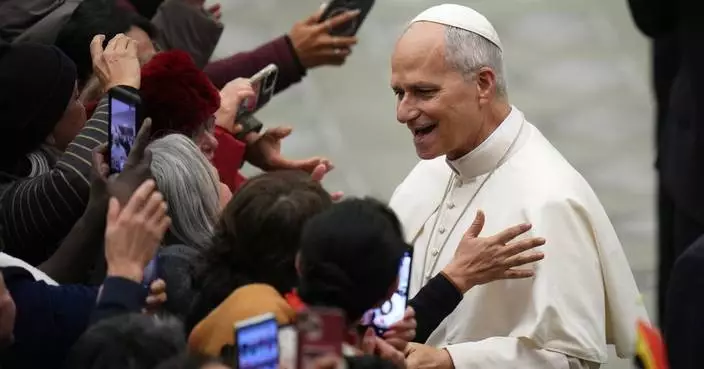
Pope to visit Spain this year, with stops in Madrid, Barcelona and Canary Islands, cardinal says

Burton Riders Debut 'From Burton to the World' Collection in Aspen & Laax
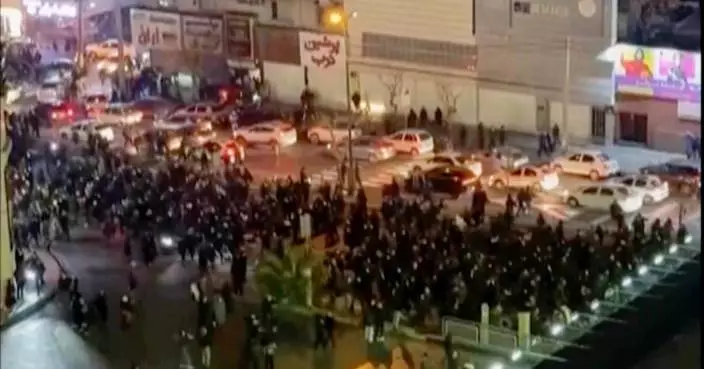
Iran supreme leader signals crackdown coming as protesters are 'ruining their own streets' for Trump
2026 Beijing Book Fair opens
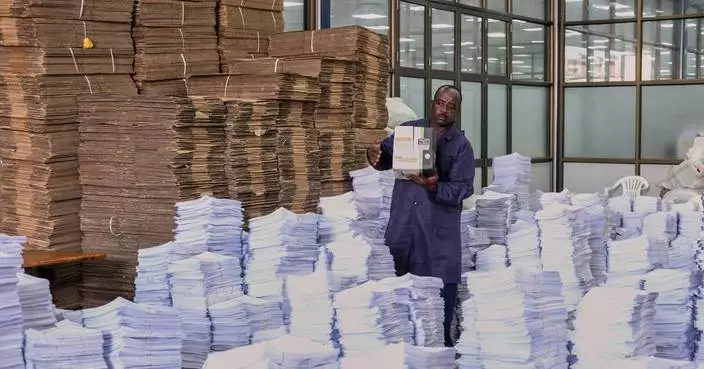
UN rights office cites 'widespread repression' in Uganda before next week's presidential election
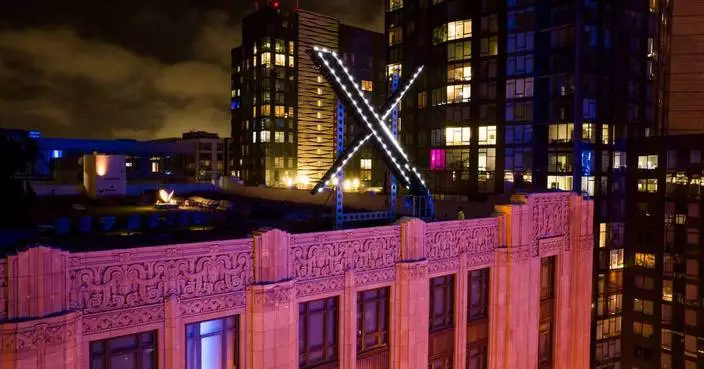
Musk's Grok chatbot restricts image generation after global backlash to sexualized deepfakes

Real Chemistry Establishes RC Resolve, an Advisory Practice for Healthcare’s Most Critical Business, Regulatory and Value Inflection Points
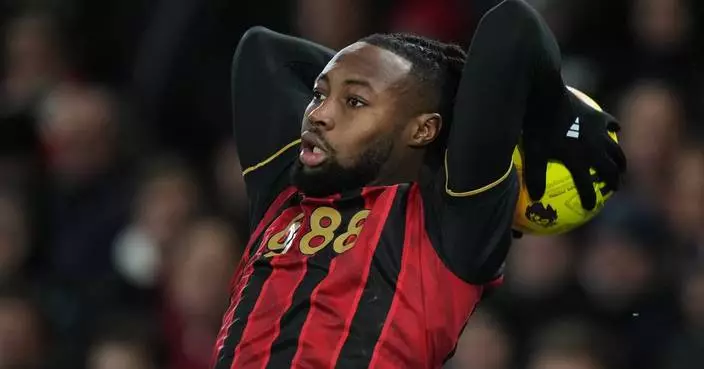
Man City signs Semenyo from Bournemouth in reported $87M deal
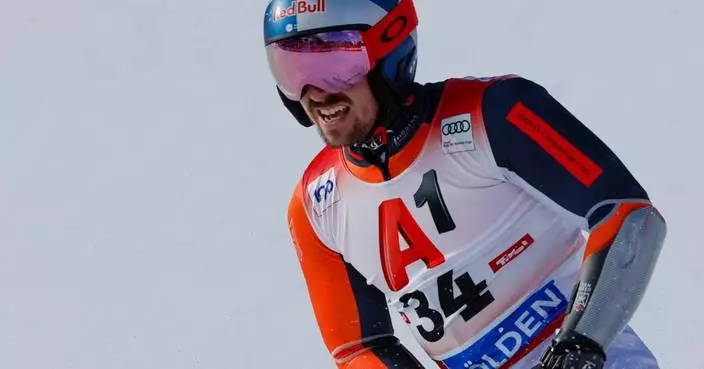
Alpine ski great Marcel Hirscher ends comeback attempt for Winter Olympics
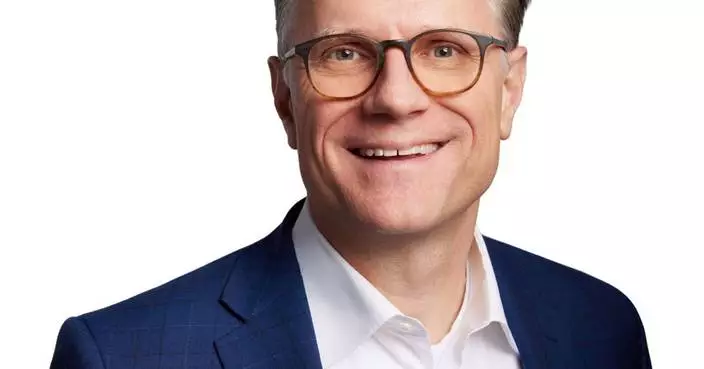
RADAR Names Former PVH/Lululemon Executive Jonathan Aitken to Lead RFID Center of Excellence
China stock markets wrap up buoyant first week of 2026: CGTN market analyst
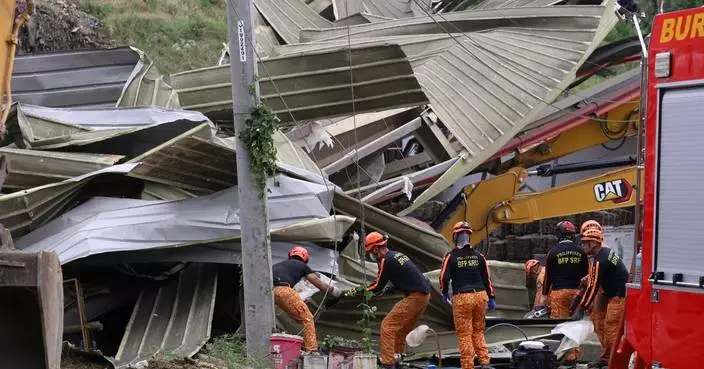
Photos show aftermath of avalanche of garbage at a Philippines landfill
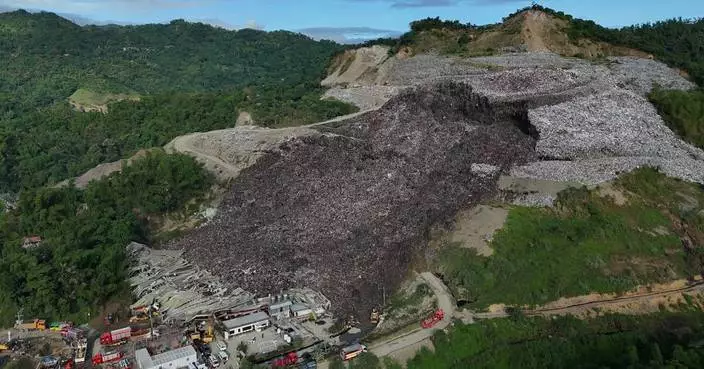
Mound of garbage collapses at Philippine landfill, killing 2 and leaving 36 others missing
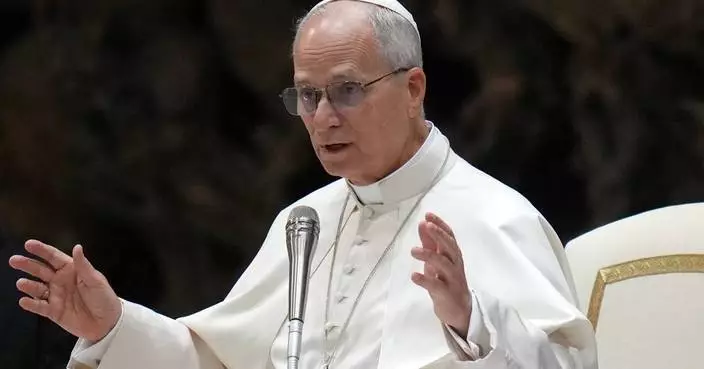
The pope in a major foreign policy address blasts how countries are using force to assert dominion
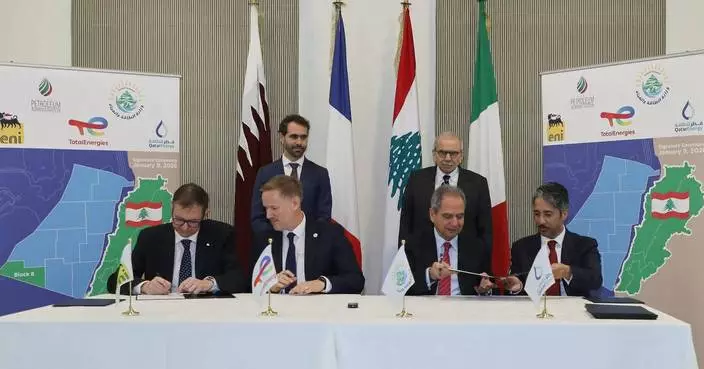
Lebanon signs gas exploration deal with international consortium amid economic crisis

Dreame Technology Wins Best of CES 2026 Honors for World-First Robotic Arm Air Conditioning System
Chinese vice premier meets Disney CEO

More historic upsets could be in store in FA Cup's third round as Premier League giants play minnows

Enhanced medical fee waivers benefit over 49,000 patients, expanding support for low-income families and critical cases.

Polestar reports record retail sales in 2025

Biocytogen and Acepodia Expand Collaboration Through Option-based Evaluation Framework for First-in-Class Bispecific and Dual-Payload ADCs (BsAD2C)

Bruker Announces $500 Million in Multi-Year Orders from Two Global Healthcare Companies for Supply of High-Performance Superconductors for MRI
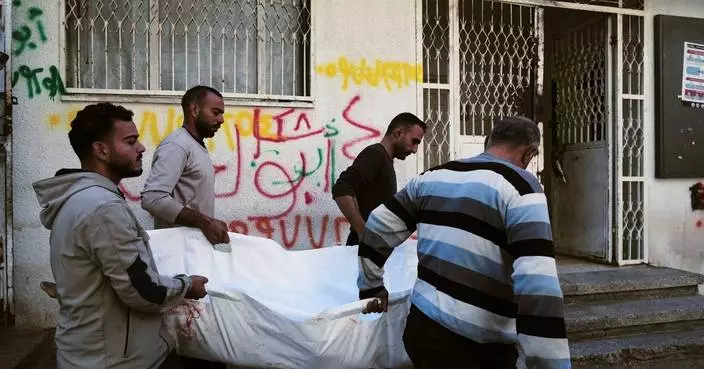
Israeli strikes kill at least 13 across Gaza, as Trump is expected to announce Board of Peace

Cresco Labs Opens Sunnyside Tamarac, Expanding Patient Access in Broward County, Florida

Kingsoft Office and FPT Enter Strategic Partnership to Accelerate WPS 365 and Global Delivery Collaboration

Oklo, Meta Announce Agreement in Support of 1.2 GW Nuclear Energy Development in Southern Ohio
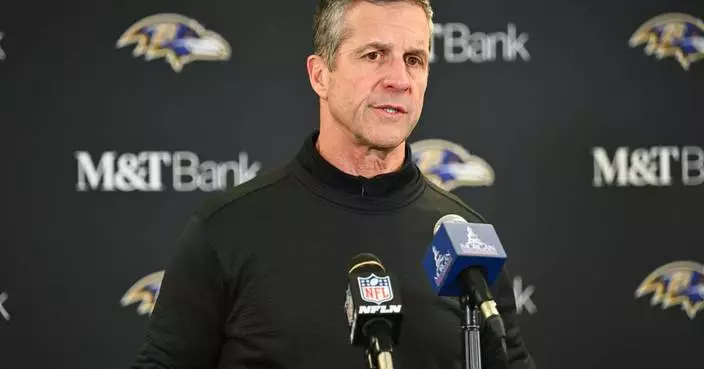
Aside from John Harbaugh, NFL teams often seek the young, rising coordinators

BingX Introduces BingX TradFi, Expanding Access to Global Financial Markets
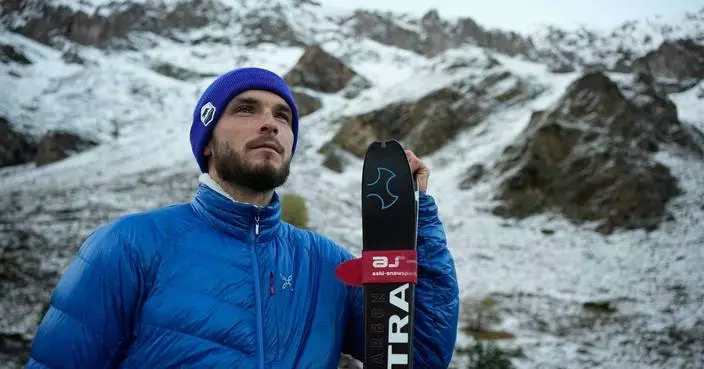
No flag, anthem or parade: An isolated Winter Olympics beckons for Russian athletes

David Bowie's childhood home in London is set to open to the public next year
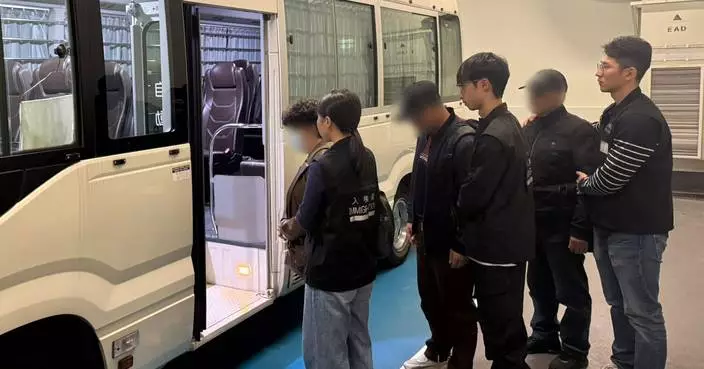
Immigration Department Arrests 12 Illegal Workers in Territory-wide Operations Contribute, Twilight, and Flabbergast
Futuristic potential of AI applications highlighted at top tech show in Las Vegas
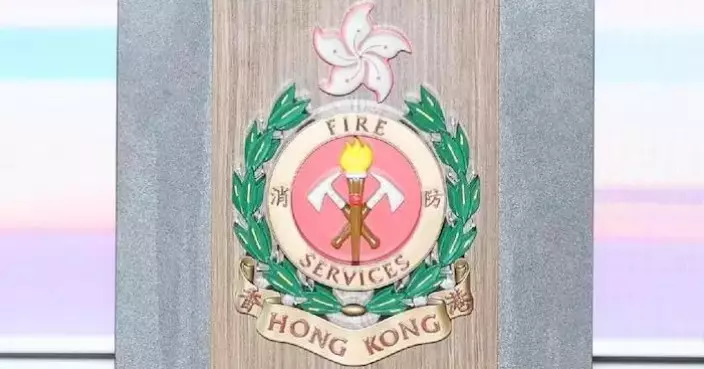
FSD Implements New Regulations for Enhanced Fire Safety Transparency and Management

The transfer portal era and pursuit of NIL money is messy. Are there solutions?

PolyU research teams and startups shine at CES 2026, winning three prestigious innovation awards

France midfielder Guendouzi moves to title-chasing Fenerbahce from Lazio
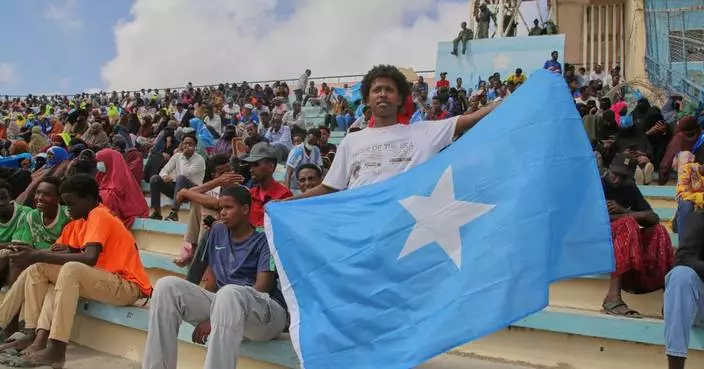
Hundreds in Somalia's capital protest Israel's recognition of breakaway territory of Somaliland
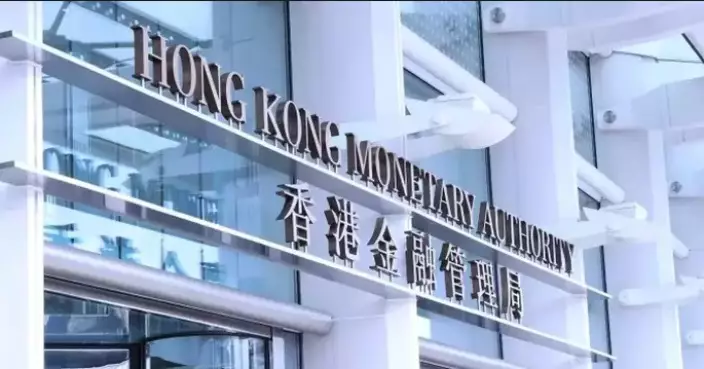
HKMA Warns Public About Recent Bank-Related Scams and Fraudulent Websites
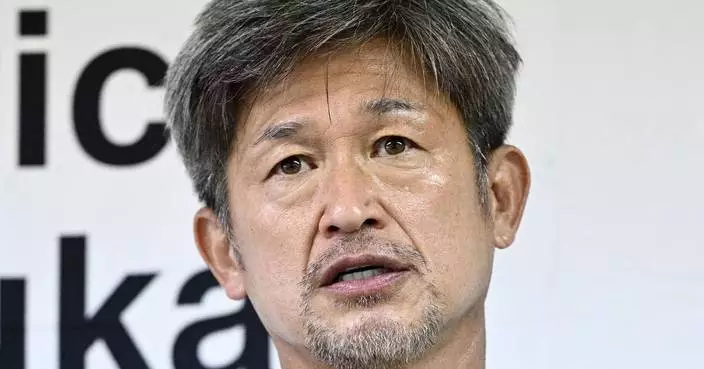
At 58, the world's oldest professional soccer player says he is only getting better with age

PETRONAS Lubricants International Debuts First-to-Market JASO-Certified Lubricants for Japan's Newest Generation of Engines
Chinese smart travel products shine at CES 2026 in Las Vegas

Kia Unveils EV2 at Brussels Motor Show

Exhibition Group Limited Proudly Announces the Launch of Three Major Consumer and Thematic Exhibitions Scheduled for January 2026

Shau Kei Wan Lot 860 to Be Sold by Public Tender Starting January 16

Starlight Centre Launches New Program For Students with Autism Entering Mainstream Primary Schools.
Beijing fuels global retail surge with 'first‑store' economy

Health Authorities Warn of Rising Dengue and Chikungunya Fever Risks Amid Favorable Mosquito Breeding Conditions
Hong Kong stocks close higher Friday

Final Weeks to Visit UABBHK 2025 — Explore AI-Enhanced Architecture Before Exhibition Closes on 24 January
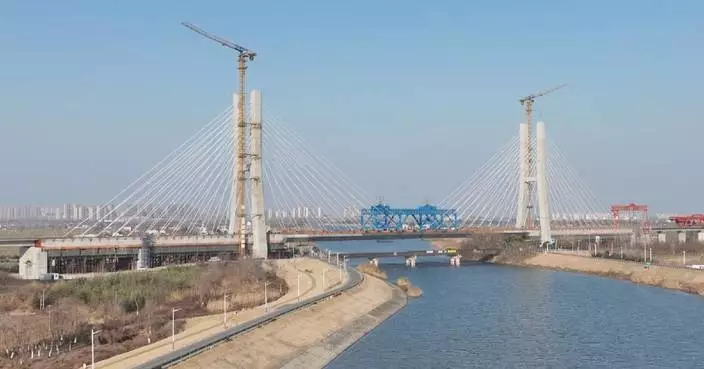
High-speed railway linking Shanghai, Nanjing, Hefei sees new construction progress
Chinese chip stock soars over 30 pct in trading debut at HKEX
China, African Union to explore full potential for practical cooperation: spokesperson



